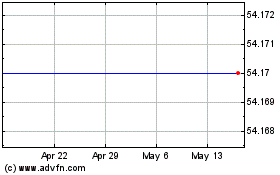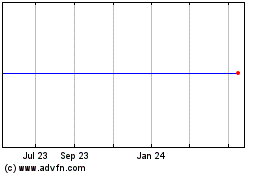FORM 6-K
SECURITIES
AND EXCHANGE COMMISSION
Washington,
D.C. 20549
Report
of Foreign Issuer
Pursuant
to Rule 13a-16 or 15d-16 of
the
Securities Exchange Act of 1934
For the
month of June 2023
Commission
File Number: 001-11960
AstraZeneca PLC
1
Francis Crick Avenue
Cambridge
Biomedical Campus
Cambridge
CB2 0AA
United
Kingdom
Indicate
by check mark whether the registrant files or will file annual
reports under cover of Form 20-F or Form 40-F.
Form
20-F X
Form 40-F __
Indicate
by check mark if the registrant is submitting the Form 6-K in paper
as permitted by Regulation S-T Rule 101(b)(1):
Indicate
by check mark if the registrant is submitting the Form 6-K in paper
as permitted by Regulation S-T Rule 101(b)(7): ______
Indicate
by check mark whether the registrant by furnishing the information
contained in this Form is also thereby furnishing the information
to the Commission pursuant to Rule 12g3-2(b) under the Securities
Exchange Act of 1934.
Yes
__
No X
If
“Yes” is marked, indicate below the file number
assigned to the Registrant in connection with Rule 12g3-2(b):
82-_____________
AstraZeneca PLC
INDEX
TO EXHIBITS
Imfinzi improved pCR in gastric and GEJ cancers
2 June 2023
Imfinzi plus
chemotherapy significantly
improved pathologic complete response in gastric and
gastroesophageal junction cancers in MATTERHORN Phase III
trial
First global Phase III trial of immunotherapy and
chemotherapy
combination to demonstrate clinical benefit in this
setting
Trial will continue to assess event-free survival
Positive
high-level results from a planned interim analysis of the
MATTERHORN Phase III trial showed treatment with
AstraZeneca's Imfinzi (durvalumab)
added to standard-of-care FLOT (fluorouracil,
leucovorin, oxaliplatin, and docetaxel) neoadjuvant (before
surgery) chemotherapy demonstrated a statistically
significant and clinically meaningful improvement in the
key secondary endpoint of pathologic complete response (pCR) versus
neoadjuvant chemotherapy alone for patients with resectable,
early-stage and locally advanced (Stages II, III, IVA) gastric and
gastroesophageal junction (GEJ) cancers.
The trial will continue as planned to assess EFS and overall
survival to which the trial team, investigators and participants
remain blinded.
The safety and tolerability of adding Imfinzi to
neoadjuvant FLOT chemotherapy was consistent with the known profile
of this combination and did not decrease the number of patients
able to undergo surgery versus chemotherapy
alone.
Josep Tabernero, MD, PhD, head of the Medical Oncology Department,
Vall d'Hebron University Hospital, Barcelona, Spain, and principal
investigator of the MATTERHORN trial, said: "Patients with
resectable gastric and gastroesophageal junction cancers urgently
need better treatment options, because today, one in four patients
still progress within one year even after surgery with curative
intent. These results demonstrate an
increase in pathologic complete response after adding durvalumab
treatment to FLOT chemotherapy and surgery. This is an encouraging
early sign that this regimen may deliver long-term clinical
benefit for these patients, as pathologic complete response has
been correlated with both event-free and overall survival in
multiple settings."
Susan Galbraith, Executive
Vice President, Oncology R&D, AstraZeneca,
said: "These
early results from
MATTERHORN support harnessing the immune system together with
chemotherapy and surgery as a new treatment approach to improve
outcomes for patients with earlier stages of gastric and
gastroesophageal junction cancers. These findings reinforce our
focus on delivering novel Imfinzi-based
treatments that have the potential to redefine care for patients
with gastrointestinal cancers."
Gastric cancer is the fourth leading cause of cancer death
globally, with more than one million people diagnosed each
year. By
2030, approximately 70,000 patients in the US, EU and Japan will be
newly diagnosed with Stage II-III gastric
or GEJ cancers.1 Approximately
one in four patients with gastric cancer who undergo surgery with
curative intent develop recurrent disease within one year,
reflecting a high unmet medical need.2
These data will be shared with health authorities and presented at
a forthcoming medical meeting.
Notes
Gastric and gastroesophageal junction cancers
Gastric (stomach) cancer is the fifth most common cancer worldwide
and the fourth highest leading cause of cancer
mortality.3 Approximately
one million new patients were diagnosed with gastric cancer in
2020, with 768,000 deaths reported globally.3
GEJ cancer is a type of gastric cancer that arises from and spans
the area where the esophagus connects to the
stomach.4
Disease recurrence is common in patients with resectable gastric
cancer despite undergoing curative-intent surgery and treatment
with neoadjuvant/adjuvant chemotherapy.2 Additionally,
the five-year survival rate for gastric cancer remains poor, with
only up to a third of patients alive at five
years.5,6
MATTERHORN
MATTERHORN is a randomised, double-blind, placebo-controlled,
multi-centre, global Phase III trial
evaluating Imfinzi as perioperative treatment for patients with
resectable Stage II-IVA gastric and gastroesophageal cancers.
Perioperative therapy includes treatment before and after surgery,
also known as neoadjuvant/adjuvant therapy. In the trial, 958
patients were randomised to receive a 1500mg fixed dose
of Imfinzi plus FLOT chemotherapy or placebo plus FLOT
chemotherapy every four weeks for two cycles prior to surgery,
followed by Imfinzi or placebo every four weeks for up to 12
cycles after surgery (including two cycles
of Imfinzi or placebo plus FLOT chemotherapy and 10
additional cycles of Imfinzi or placebo monotherapy).
In the MATTERHORN trial, the primary endpoint is EFS, defined as
the time from randomisation until disease progression or death. Key
secondary endpoints include pCR rate, defined as the proportion of
patients who have no detectable cancer cells in resected tumour
tissue following neoadjuvant therapy, and overall survival (OS).
The trial enrolled participants in 176 centres in 20 countries,
including in the US, Canada, Europe, South America and
Asia.
Imfinzi
Imfinzi (durvalumab)
is a human monoclonal antibody that binds to the PD-L1 protein and
blocks the interaction of PD-L1 with the PD-1 and CD80 proteins,
countering the tumour's immune-evading tactics and releasing the
inhibition of immune responses.
Imfinzi is
approved in combination with chemotherapy (gemcitabine plus
cisplatin) in locally advanced or metastatic biliary tract cancer
(BTC) and in combination with Imjudo (tremelimumab)
in unresectable hepatocellular carcinoma (HCC) in the US, EU, Japan
and several other countries based on the TOPAZ-1 and HIMALAYA Phase
III trials, respectively.
In addition to its indications in gastrointestinal (GI)
cancers, Imfinzi is
the only approved immunotherapy and the global standard of care in
the curative-intent setting of unresectable, Stage III non-small
cell lung cancer (NSCLC) in patients whose disease has not
progressed after chemoradiation therapy based on the PACIFIC Phase
III trial.
Imfinzi is
also approved in the US, EU, Japan, China and many other countries
around the world for the treatment of extensive-stage small-cell
lung cancer (SCLC) based on the CASPIAN Phase III trial.
Additionally, Imfinzi is
approved in combination with a short course of Imjudo and
chemotherapy for the treatment of metastatic NSCLC in the US, EU
and Japan based on the POSEIDON Phase III trial. Imfinzi is
approved in previously treated patients with advanced bladder
cancer in a small number of countries.
Since the first approval in May 2017, more than 200,000 patients
have been treated with Imfinzi.
As part of a broad development programme, Imfinzi is being tested as a single treatment and in
combinations with other anti-cancer treatments for patients with
SCLC, NSCLC, bladder cancer, several GI cancers, ovarian cancer,
endometrial cancer and other solid
tumours.
In GI cancers specifically, AstraZeneca has several ongoing
registrational trials investigating Imfinzi across
multiple liver cancer settings (EMERALD-1, EMERALD-2 and EMERALD-3)
and in locally
advanced esophageal cancer (KUNLUN).
AstraZeneca in GI cancers
AstraZeneca has a broad development programme for the treatment of
GI cancers across several medicines and a variety of tumour types
and stages of disease. In 2020, GI cancers collectively represented
approximately 5.1 million new cancer cases leading to approximately
3.6 million deaths.7
Within this programme, the Company is committed to improving
outcomes in gastric, liver, biliary tract, oesophageal, pancreatic
and colorectal cancers.
In addition to its indications in BTC and
HCC, Imfinzi is being assessed in combinations, including
with Imjudo, in liver, oesophageal and gastric cancers in
an extensive development programme spanning early to late-stage
disease across settings.
Enhertu (trastuzumab
deruxtecan), a HER2-directed antibody drug conjugate, is approved
in the US and several other countries for HER2-positive advanced
gastric cancer and is being assessed in colorectal
cancer. Enhertu is jointly developed and commercialised by
AstraZeneca and Daiichi Sankyo.
Lynparza (olaparib),
a first-in-class PARP inhibitor, is approved the US and several
other countries for the treatment of BRCA-mutated metastatic
pancreatic cancer. Lynparza is developed and commercialised in
collaboration with MSD (Merck & Co., Inc. inside the US and
Canada).
AstraZeneca also recently entered into a global exclusive license
agreement with KYM Biosciences Inc. for CMG901. CMG901 is a
potential first-in-class antibody drug conjugate targeting Claudin
18.2, a promising therapeutic target in gastric cancer, currently
in Phase I development.
AstraZeneca in immuno-oncology (IO)
AstraZeneca is a pioneer in introducing the concept of
immunotherapy into dedicated clinical areas of high unmet medical
need. The
Company has a comprehensive and diverse IO portfolio and pipeline
anchored in immunotherapies designed to overcome evasion of the
anti-tumour immune response and stimulate the body's immune system
to attack tumours.
AstraZeneca aims to reimagine cancer care and help transform
outcomes for patients with Imfinzi as a single treatment and in combination
with Imjudo as well as other novel immunotherapies and
modalities. The Company is also exploring next-generation
immunotherapies like bispecific antibodies and therapeutics that
harness different aspects of immunity to target
cancer.
AstraZeneca is boldly pursuing an innovative clinical strategy to
bring IO-based therapies that deliver long-term survival to new
settings across a wide range of cancer types. With an extensive
clinical programme, the Company also champions the use of IO
treatment in earlier disease stages, where there is the greatest
potential for cure.
AstraZeneca in oncology
AstraZeneca is leading a revolution in oncology with the ambition
to provide cures for cancer in every form, following the science to
understand cancer and all its complexities to discover, develop and
deliver life-changing medicines to patients.
The Company's focus is on some of the most challenging cancers. It
is through persistent innovation that AstraZeneca has built one of
the most diverse portfolios and pipelines in the industry, with the
potential to catalyse changes in the practice of medicine and
transform the patient experience.
AstraZeneca has the vision to redefine cancer care and, one day,
eliminate cancer as a cause of death.
AstraZeneca
AstraZeneca (LSE/STO/Nasdaq: AZN) is a global, science-led
biopharmaceutical company that focuses on the discovery,
development, and commercialisation of prescription medicines in
Oncology, Rare Diseases, and BioPharmaceuticals, including
Cardiovascular, Renal & Metabolism, and Respiratory &
Immunology. Based in Cambridge, UK, AstraZeneca operates in over
100 countries and its innovative medicines are used by millions of
patients worldwide. Please visit astrazeneca.com and
follow the Company on Twitter @AstraZeneca.
Contacts
For details on how to contact the Investor Relations Team, please
click here.
For Media contacts, click here.
References
1.
Kantar
Health, validated with SEER stage at diagnosis and Cabasag et al.
and Kuzuu et al. 2021
2.
Li Y, et al. Postoperative recurrence of gastric cancer
depends on whether the chemotherapy cycle was more than 9
cycles. Medicine. 2022;101(5):e28620.
3.
World Health Organisation. International Agency
for Research on Cancer. Stomach Fact Sheet. Available
at: https://gco.iarc.fr/today/data/factsheets/cancers/7-Stomach-fact-sheet.pdf.
Accessed May 2023.
4.
National Cancer Institute. Gastroesophageal
junction. Available at: https://www.cancer.gov/publications/dictionaries/cancer-terms/def/gastroesophageal-junction.
5.
American Cancer Society. Stomach Cancer Survival
Rates. Available at: https://www.cancer.org/cancer/types/stomach-cancer/detection-diagnosis-staging/survival-rates.html.
Accessed May 2023.
6.
Cancer Research UK. Survival for stomach cancer.
Available at: https://www.cancerresearchuk.org/about-cancer/stomach-cancer/survival.
Accessed May 2023.
7.
World Health Organisation. World Cancer Fact
Sheet. Available at: https://gco.iarc.fr/today/data/factsheets/populations/900-world-fact-sheets.pdf. Accessed
May 2023.
Adrian Kemp
Company Secretary
AstraZeneca PLC
SIGNATURES
Pursuant
to the requirements of the Securities Exchange Act of 1934, the
Registrant has duly caused this report to be signed on its behalf
by the undersigned, thereunto duly authorized.
Date:
02 June 2023
|
|
By: /s/
Adrian Kemp
|
|
|
Name:
Adrian Kemp
|
|
|
Title:
Company Secretary
|
AstraZeneca (NYSE:AZN)
Historical Stock Chart
From Dec 2024 to Jan 2025

AstraZeneca (NYSE:AZN)
Historical Stock Chart
From Jan 2024 to Jan 2025
